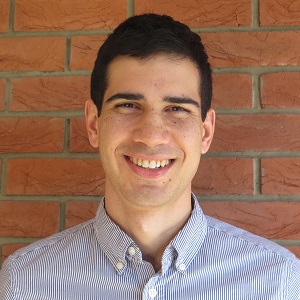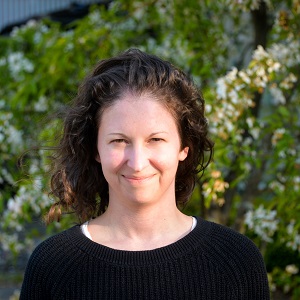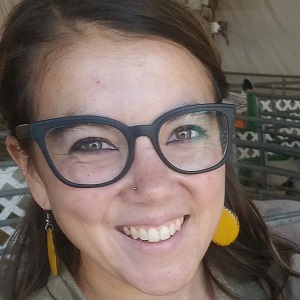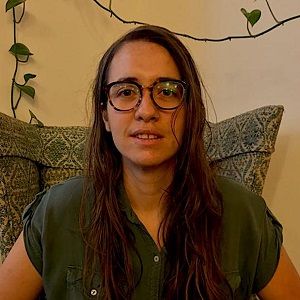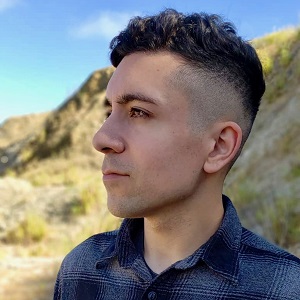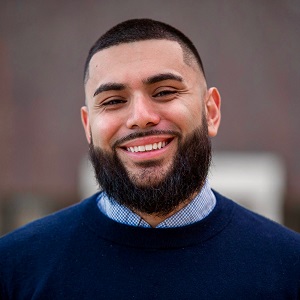CES Fellows 2020-2021
2020-2021 CES Fellows
Isaac Jabola-Carolus
Isaac’s research focuses on paid in-home care work and policy efforts to raise labor standards within this rapidly growing sector. Through survey and interview methods, his dissertation examines how regulatory bodies and labor organizations affect work conditions across U.S. cities. This project emerged from Isaac’s past research on social movement outcomes and from a commitment to developing research questions in dialogue with those in the field. The issue of labor standards implementation has gained particular salience in recent years, as a surge of mobilization and policy change produced Domestic Worker Bills of Rights, minimum wage increases, and greater unionization in this sector. Isaac’s dissertation studies whether and how such developments impact the lives of in-home workers and those in their care.
Isaac has published articles in New Political Science and Social Movement Studies. Previously he served as the New York Chapter Graduate Fellow for the Scholars Strategy Network, taught sociology at Lehman College-CUNY, and worked at the Participatory Budgeting Project. His dissertation research has been supported by the Labor Research and Action Network, the Center for Equitable Growth, and the National Science Foundation. He received his B.A. in development studies from Brown University.
Jessica Katzenstein
U.S. policing has faced a mounting legitimacy crisis over the past several years, from Ferguson’s 2014 protests to the rise of the Movement for Black Lives. While police officials insist that unjust killings are the fault of “bad apples” in the force, critics argue that addressing police violence requires massive structural reform. Yet previous attempts at reforming the police have left untouched the institution’s foundational mandates, leading to recurring crises of legitimacy.
Jessica’s dissertation, “Reforming U.S. Police: Crisis, Labor, and Moral Legitimacy in Maryland,” explores why reforms fail to fulfill their promises.
Drawing on 16 months of ethnographic fieldwork in 20 departments across Maryland, this project examines how police officers absorb and resist reform efforts by translating them into police terms. It traces how police subjects are produced, how they negotiate institutional strictures and working conditions, and how they conceptualize care for their communities. Marrying the insights of critical race studies and American studies with the anthropology of work, ethics, and the state, Jessica’s dissertation interrogates how the everyday labor of policing renders reform into a kind of “productive failure.”
Jessica’s project emerges from a commitment to studying up, or studying the powerful, as a necessary supplement to research with oppressed communities. Her work is grounded in sustained engagement with Baltimore, where she has worked for various human rights and social justice nonprofits. Her research has been supported by multiple National Science Foundation fellowships. Jessica received a BA from Washington University in St. Louis and an MA from Brown University.
Micah Khater
Micah Khater’s dissertation, "'Unable to Find Any Trace of Her’: Black Women, Genealogies of Escape, and Alabama Prisons, 1920–1950,” examines how black women negotiated encounters with and contested the violence of the carceral state by running away from prisons, jails, and police. She came to her work after finding a series of fragile twentieth-century prison escape notices stored at the Alabama Department of History and Archives. Her involvement in prison abolition guides her project and informs how she thinks and writes about carceral spaces.
Khater’s dissertation sits at the juncture of carceral state studies, social history, cultural studies, and black feminist theory. Using a broad range of archival sources—including handwritten letters, fire insurance maps, jail records, escape notices, bureaucratic correspondence, newspaper articles, court dockets, photographs, and architectural drawings — Khater’s work centers black women’s attempts to reclaim social identities in the “free world.” Her project identifies the act of running away, or transgressively moving through space, as both a rhetoric of protest and an articulation of desire. In this way, “‘Unable to Find Any Trace of Her’” renders alternative narratives of insurgency that acknowledge how kinship, grief, longing, and loss were always bound up with resistive action.
Khater's work has been supported by the Center for the Study of Race, Indigeneity, and Transnational Migration; the Gilder Lehrman Center for the Study of Slavery, Resistance, and Abolition; and the Frances S. Summersell Center for the Study of the South, among others. She earned her B.A. in History and French from North Carolina State University in 2015.
Lucia Leon
Lucia Leon grew up in Orange County, California where she began organizing with undocumented youth and their families in the mid-2000s.
Her commitment to social justice and research interest on migration is profoundly shaped by her family’s experience with the family reunification process and her own political and intellectual trajectory as an undocumented immigrant of nearly 20 years. Her dissertation, “Intersectional Illegalities: Latina/o Undocumented Young Adults and the Marriage-Based Legalization Process,” combines a legal consciousness and intersectional framework to examine how discrete, yet intersecting markers of race, gender and sexuality interact to shape the legalization process for undocumented migrants in Los Angeles, California. Her research provides an empirical examination of a high stakes process to demonstrate how young adults interpret, comply with, or challenge a complex immigration system that can propel them into a path to citizenship or further their vulnerability for detention and deportation.
Lucia is currently co-creating a collaborative and community space with fellow scholars of migration through the founding of the Undocumented and Formerly Undocumented Migration Working Group. Through multi-authored papers, projects, and gatherings the workgroup addresses the unique challenges in the research process for current and formerly undocumented scholars who draw on their experiences with migration when theorizing and working with undocumented communities.
Sadé Lindsay
Sadé’s research interests broadly include racial inequality, prisoner reentry and employment, incarceration and health, and drug use and policy.
Her dissertation, Effects of Contradictory Signals on Post-Prison Labor Market Outcomes, draws on a field experiment conducted in five states and 100 qualitative interviews with employers and formerly incarcerated men to examine whether and how certifications obtained in prison programs reduce stigma and discrimination experienced by returning citizens in the labor market. Her dissertation has received an award from the American Society of Criminology’s Division on Corrections and Sentencing and is supported by the National Science Foundation’s Sociology Doctoral Dissertation Improvement Grant.
Sadé’s dissertation research is informed by her direct service to incarcerated youth. She spent three years preparing young men in a juvenile correctional facility for reentry through financial and career goal planning and resume-building activities in addition to other activities on fatherhood, education, and health and wellness. Sadé continues work and advocacy surrounding issues of incarceration and reentry through her involvement with local reentry organizations and coalitions.
Sadé received her bachelor’s degree in Criminology and master’s degree in Sociology at the Ohio State University in 2015 and 2017, respectively. She is a Ruth D. Peterson Fellow of the American Society of Criminology, a Center on Democracy and Organizing Fellow, and an Academy of Criminal Justice Sciences’ Doctoral Summit Scholar
Elizabeth Hanna Rubio
Elizabeth’s dissertation, “Contentious Solidarities,” explores how undocumented Korean American organizers conceptualize and navigate solidarity building with Black and Latinx counterparts as they develop visions for immigrant justice that extend beyond legalization and other forms of state recognition.
Responding to the rapid growth of undocumented Korean and other Asian American populations in the US, Korean Resource Center (KRC) and the National Korean American Services and Education Consortium (NAKASEC) have become influential players in the Southern Californian and national immigrant justice movements, respectively. Yet Korean Americans’ complex positioning in U.S. racial imaginaries as both victims of white supremacy, and beneficiaries of anti-Blackness gives rise to discursive, ideological, and material contradictions in KRC and NAKASEC’s work.
The resurgence of more overt forms of white supremacy, urgent calls to center anti-Blackness in racial justice work, and social media’s role in mainstreaming and intensifying debates about effective anti-racist praxis combine to create urgent re-conceptualizations of what constitutes a “progressive” stance, and by who and for whom such stances should be elaborated. Based on over two years of ethnographic fieldwork in Southern California, New York City, and Washington D.C., “Contentious Solidarities” follows KRC, NAKASEC, and the organizers with whom they ally and diverge to show how progressive Korean Americans navigate and respond to the contradictions that arise from shifting conceptualizations of racialized power and privilege.
A decade of organizing in national and local immigrant justice movements motivated Elizabeth to examine the internal racialized politics of immigrant justice worlds and the ways racialization informs how different organizers conceptualize justice for immigrants. A lifetime of navigating her identity as a mixed-race Korean American informs her exploration of the racialized contours of immigrant justice work.
2020-2021 Honorable Mentions
Isabel Gil Everaert
Isabel is interested in broader understandings of the impacts of restrictive migratory policies in the lives of asylum seekers, refugees and migrants. Her work focuses on the experiences of Central American migrants and refugees in Mexico, her home country.
As conditions in Central America deteriorate, more and more people have left their homes, in many cases, fleeing life-threatening situations. This situation has led to the consolidation of a narrative of a migrant and refugee crisis. This, however, has not led governments in the region towards policies aimed at protection, inclusion, and social justice. Instead, discourses of crisis have become the backbone of increasingly restrictive migratory and asylum policies, aimed at managing and controlling migratory movements, along with a systematic violation of human rights and deterrence strategies that deny protection to refugees. Drawing on extensive ethnographic fieldwork in a strategic site in Mexico’s southern border with Guatemala, Isabel’s dissertation uncovers unexplored dynamics between mobility, time, and power.
Through a comprehensive empirical analysis of this reality, her research has three main objectives. First, to contribute to current scholarly discussions on mobility/immobility, migration, refugee and human rights, power and inequality. Second, to engage in methodological explorations of and debates over how to study these mobile populations in a way that is ethical, systematic, and broadly sociologically relevant. Third, to engage with debates on who has the right to move and who doesn’t, as well as of who controls these movements and in what ways.
Abel Gomez
Lineages of Abel’s family migrated from Nicaragua, El Salvador, and Mexico to the San Francisco Bay Area, the traditional territory of the Ohlone peoples.
Abel’s dissertation examines place-based belonging and movements to protect sacred sites by diverse Ohlone tribes of the San Francisco-Monterey Bay Area, even as they are without federal recognition and their territories are sites of major urban centers, migration, and gentrification. Drawing on ethnographic research and insights from religious studies, anthropology, geography, and Indigenous feminisms, Abel’s research engages the meaning of land as a site of ceremony, belonging, political activism, and futurity. These lands embody what Charles Long (1999) describes as “orientation in the ultimate sense,” sites of profound existential meaning.
Abel’s dissertation argues that to varying degrees, these lands are also sites of spiritual presences, transnational relationships, and contested narratives where Ohlone peoples participate in what Mishuana Goeman (2013) describes as “(re)mapping” of traditional and contemporary land relations. Such analysis seeks to support contemporary political movements to protect sacred sites in Ohlone territories such as the burial site at the West Berkeley Shellmound led by the Confederated Villages of Lisjan Ohlone and work of the Amah Mutsun Tribal Band to defend a ceremonial site called Juristac. In the wake of Standing Rock and Mauna Kea, Abel’s dissertation also situates Ohlone sacred sites protection efforts in the context of global indigenous movements defending land, water, and culture.
Abel earned a BA in philosophy and religion from San Francisco State University and an MA in religious studies from the University of Missouri.
Mo Torres
Mo’s research explores questions of racial capitalism and political economy.
His dissertation considers the case of the U.S. Rust Belt, where cities like Detroit and Flint have long suffered the effects of post-industrial decline. The project explores the rise (and ultimately fall) of Michigan’s controversial “emergency financial management” (EFM) legislation. EFM laws allow Michigan’s governor the ability to appoint an “emergency manager” to assume total control of any city deemed to be in a state of financial emergency. These laws have disproportionately restricted local control in majority-Black cities, and ultimately played a key role in producing Flint’s water crisis. Using archival and interview methods, this project seeks to understand how and why EFM came to be by considering the logics and strategies employed by those with political power - especially state lawmakers and political operatives - at the expense of those without.
Mo lived in Detroit and taught in the Detroit Public Schools district while both the city and district were under state control, thus sparking an interest in EFM in particular, and state-urban political tensions more broadly.
Originally from Sacramento, Mo has a master’s in public policy from the University of Michigan, and a bachelor’s in history and Chicana/o Studies from the University of California, Davis. At the Harvard Kennedy School, he is a Doctoral Fellow in the Multidisciplinary Program in Inequality and Social Policy, and at the Ash Center for Democratic Governance. He is a first-generation college student and a former U.S. Fulbright Scholar to Brazil.
